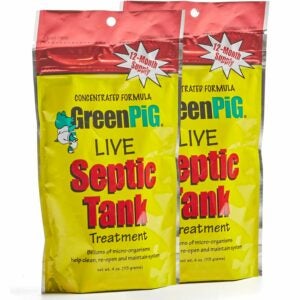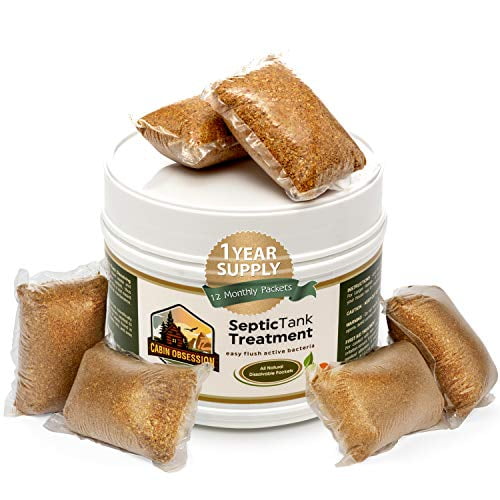If you’re a homeowner with a septic tank, you’ve probably wondered at some point about the best treatment to keep it in optimal condition. With so many options available in the market, it’s easy to feel overwhelmed. This article aims to demystify the choices and provide you with valuable insights on which septic tank treatment might be the best fit for your needs. From natural enzymes to chemical additives, we’ll explore the pros and cons, helping you make an informed decision for a healthy septic system. So, let’s get started!
Importance of Septic Tank Treatment
Protects against drainage system issues
Taking care of your septic tank is crucial in preventing drainage system issues. A septic tank that is not properly maintained can lead to clogs, backups, and even complete system failure. Regular septic tank treatments help break down solid waste and grease, ensuring that it flows smoothly through the pipes and into the drain field. By investing in septic tank treatment, you can prevent costly and messy repairs down the line.
Prevents foul odors
One of the most common complaints associated with septic tanks is foul odors. These odors can permeate your home and make it unpleasant for you and your family. Septic tank treatments contain enzymes and bacteria that actively work to break down organic materials in the tank, reducing the chances of unpleasant odors. Regular treatments will keep your septic system smelling fresh and clean.
Avoids costly repairs
Neglecting your septic tank can lead to costly repairs. When a septic system fails, it can cause extensive damage to your property, requiring expensive repairs and replacements. Regular septic tank treatments help to maintain the health of your tank and extend its lifespan, reducing the risk of major issues occurring. By investing in septic tank treatment, you can avoid the headache and expense of repairing or replacing your septic system.
Types of Septic Tank Treatments
Chemical Treatments
Chemical treatments for septic tanks typically contain strong chemicals that target and break down solid waste and grease. These treatments often come in the form of powders, pellets, or liquids that are poured directly into the tank. Chemical treatments are known for their quick action and effectiveness in breaking down waste. They can be a good option for addressing immediate issues and providing a fast fix. However, it is important to note that some chemical treatments contain harsh ingredients that may be harmful to the environment and the beneficial bacteria in your septic tank.
Natural Treatments
Natural treatments for septic tanks use non-toxic and environmentally friendly ingredients to break down waste. These treatments often contain enzymes and bacteria that naturally occur in the environment. Natural treatments work by enhancing the natural breakdown process of organic materials in the septic tank. They are a popular choice for those who prioritize eco-friendliness and are looking for a more natural approach to septic tank maintenance.
Biological Treatments
Biological treatments for septic tanks are similar to natural treatments in that they utilize naturally occurring bacteria and enzymes. However, biological treatments often contain a higher concentration of these beneficial microorganisms, which accelerates the breakdown process. Biological treatments are highly effective in breaking down solids and improving overall septic system performance. They are a great option for those who want a powerful treatment that is still environmentally friendly.
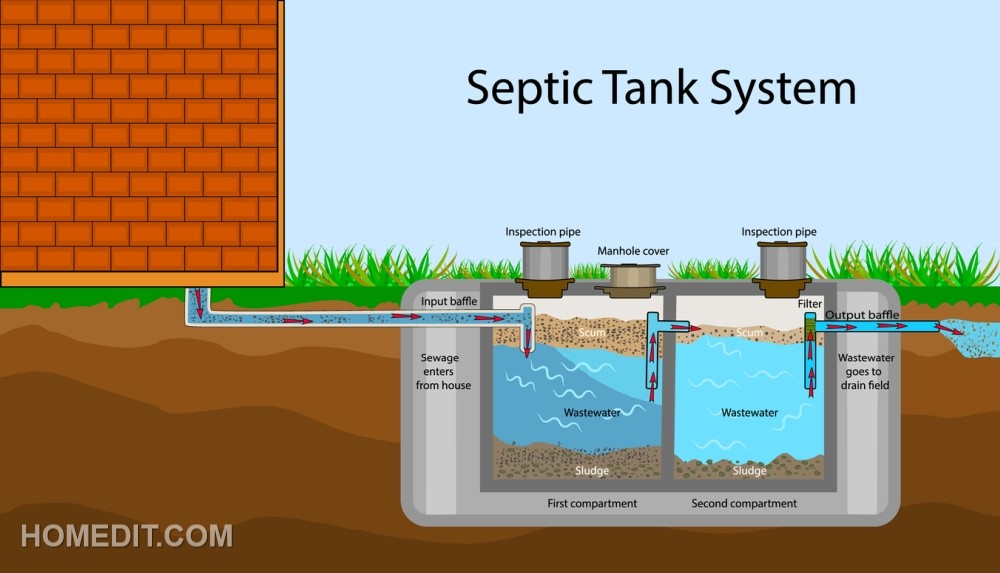
Factors to Consider when Choosing a Septic Tank Treatment
Type of septic system
The type of septic system you have will play a role in determining the best treatment option. Conventional septic systems, aerobic systems, and alternative systems all have different requirements and considerations when it comes to septic tank treatments. It’s important to choose a treatment that is compatible with your specific septic system to ensure optimal results.
Severity of the problem
The severity of the problem you are experiencing with your septic system will also influence your choice of treatment. If you are dealing with minor issues such as odors or slow drainage, a milder treatment may be sufficient. However, for more serious problems like clogs or backups, a stronger treatment may be necessary. Assess the severity of the problem before selecting a treatment to ensure that it is appropriate for the situation.
Environmental impact
Considering the environmental impact of the septic tank treatment is essential, especially if you are conscious of eco-friendliness. Chemical treatments may contain harsh ingredients that can harm the environment and disrupt the natural balance of bacteria in the septic system. On the other hand, natural and biological treatments offer more environmentally friendly options that do not compromise the health of the ecosystem surrounding your septic tank.
Convenience and ease of use
The convenience and ease of use of a septic tank treatment should also be taken into account. Some treatments require more frequent application or additional steps, while others may only require a one-time application. Consider your schedule and lifestyle when choosing a treatment to ensure that it fits seamlessly into your routine.
Effectiveness of Chemical Septic Tank Treatments
Pros of Chemical Treatments
Chemical treatments for septic tanks are known for their fast-acting capabilities. They can quickly break down solid waste and grease, effectively addressing clogs and backups. Chemical treatments are also readily available and easy to use. They can be a convenient option for those who need immediate results or who prefer a simple solution.
Cons of Chemical Treatments
While chemical treatments offer quick results, they can have downsides as well. Some chemical treatments contain harsh ingredients that may be harmful to the environment and the beneficial bacteria in your septic tank. Over time, these treatments can disrupt the natural balance of bacteria, leading to ineffective breakdown of waste. Additionally, the repeated use of chemical treatments may contribute to the development of resistant bacteria in the septic system.
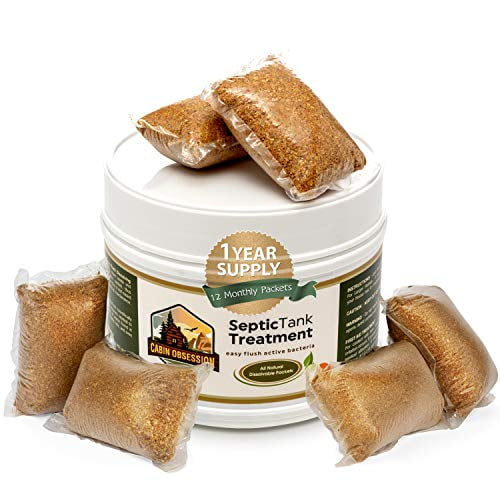
Effectiveness of Natural Septic Tank Treatments
Pros of Natural Treatments
Natural treatments for septic tanks offer an eco-friendly alternative to chemical options. They utilize non-toxic ingredients, enzymes, and bacteria that naturally break down waste in the septic tank. Natural treatments are safe for the environment, do not disrupt the natural balance of bacteria, and can improve overall system performance. They are a great choice for those who prioritize sustainability and want a gentle yet effective treatment.
Cons of Natural Treatments
While natural treatments are generally safe and effective, they may require more time to see visible results. The breakdown process can be slower compared to chemical treatments. Depending on the severity of the issue, you may need to be patient and consistent with the application of natural treatments. Additionally, natural treatments may come at a higher initial cost compared to chemical options.
Effectiveness of Biological Septic Tank Treatments
Pros of Biological Treatments
Biological treatments are highly effective in breaking down solid waste and improving septic system performance. They contain a high concentration of beneficial bacteria and enzymes that accelerate the breakdown process. Biological treatments can restore the natural balance of bacteria in the septic tank, ensuring optimal waste breakdown and long-term system health. They are an excellent option for those who want powerful treatment without compromising on eco-friendliness.
Cons of Biological Treatments
Although biological treatments offer great results, they may require additional steps and ongoing maintenance compared to other types of treatments. These treatments need to be reapplied regularly to maintain the high concentration of beneficial microorganisms in the septic system. This ongoing maintenance may involve additional costs and efforts on your part to ensure the effectiveness of the treatment.
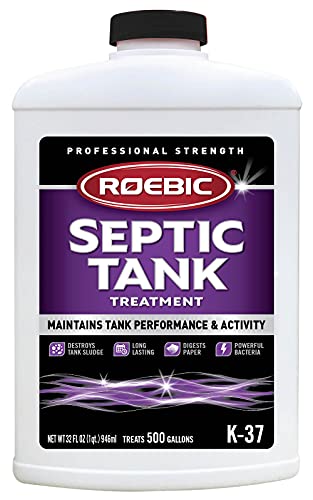
Cost Considerations for Septic Tank Treatments
Initial cost
When considering septic tank treatments, it is important to take into account the initial cost. Chemical treatments tend to be more affordable upfront, while natural and biological treatments may have a higher initial cost. However, it is essential to remember that the effectiveness and long-term benefits may outweigh the initial investment. Consider the long-term savings and the potential for costly repairs if your septic system fails due to inadequate treatment.
Ongoing maintenance cost
In addition to the initial cost, ongoing maintenance is another important factor to consider. Chemical treatments may require more frequent applications and ongoing purchases, resulting in higher ongoing maintenance costs. Natural and biological treatments, on the other hand, may require less frequent applications but may still have ongoing maintenance costs. Calculate the long-term expenses of each treatment option to make an informed decision based on your budget.
Environmentally Friendly Options
Biological treatments
Biological treatments are an environmentally friendly option for septic tank maintenance. These treatments use naturally occurring bacteria and enzymes to break down waste in the septic tank, without causing harm to the environment. By choosing biological treatments, you can ensure that your septic system remains healthy while minimizing the impact on the surrounding ecosystem.
Natural enzyme treatments
Natural enzyme treatments are another eco-friendly choice for septic tank maintenance. These treatments utilize natural enzymes to accelerate the breakdown of waste in the septic tank. They are safe for the environment and can improve overall system performance. Natural enzyme treatments are a great option for those who want a gentle and sustainable approach to septic tank treatment.

Considerations for Different Types of Septic Systems
Conventional septic systems
For conventional septic systems, it is important to choose a treatment that is compatible with the system’s requirements. Consider the size of the tank and the specific needs of the system. Some treatments may be better suited for larger or smaller tanks, while others may cater to specific issues commonly associated with conventional septic systems.
Aerobic systems
Aerobic septic systems have higher oxygen levels, allowing for faster breakdown of waste. When selecting a treatment for an aerobic system, it is important to choose one that is specifically designed for aerobic systems. These treatments often contain a higher concentration of beneficial bacteria and enzymes to ensure optimal performance.
Alternative systems
Alternative septic systems, such as sand filters or mound systems, have different requirements compared to conventional and aerobic systems. These systems may require specialized treatments that target specific issues related to the type of system. Consult with a professional to determine the best treatment option for your alternative septic system.
Recommended Septic Tank Treatments
Based on septic system type
For conventional septic systems, natural treatments and biological treatments are often recommended. These treatments are compatible with most conventional systems and promote long-term system health. For aerobic systems, it is best to choose a treatment specifically designed for aerobic septic systems to ensure optimal performance. Alternative systems may require specialized treatments based on their unique requirements.
Based on problem severity
The severity of the problem you are experiencing with your septic system will also influence the recommended treatment. For minor issues like odors or slow drainage, a natural or biological treatment may be sufficient. For more serious problems like clogs or backups, a stronger treatment may be required. Consult with a professional to assess the severity of the problem and determine the most appropriate treatment option.
By understanding the importance of septic tank treatment and considering the different types of treatments available, you can make an informed decision that suits your septic system’s needs. Whether you choose chemical, natural, or biological treatments, regular maintenance of your septic tank is essential for preventing issues and ensuring the longevity of your system. Invest in the right treatment and enjoy a well-functioning septic system for years to come.
